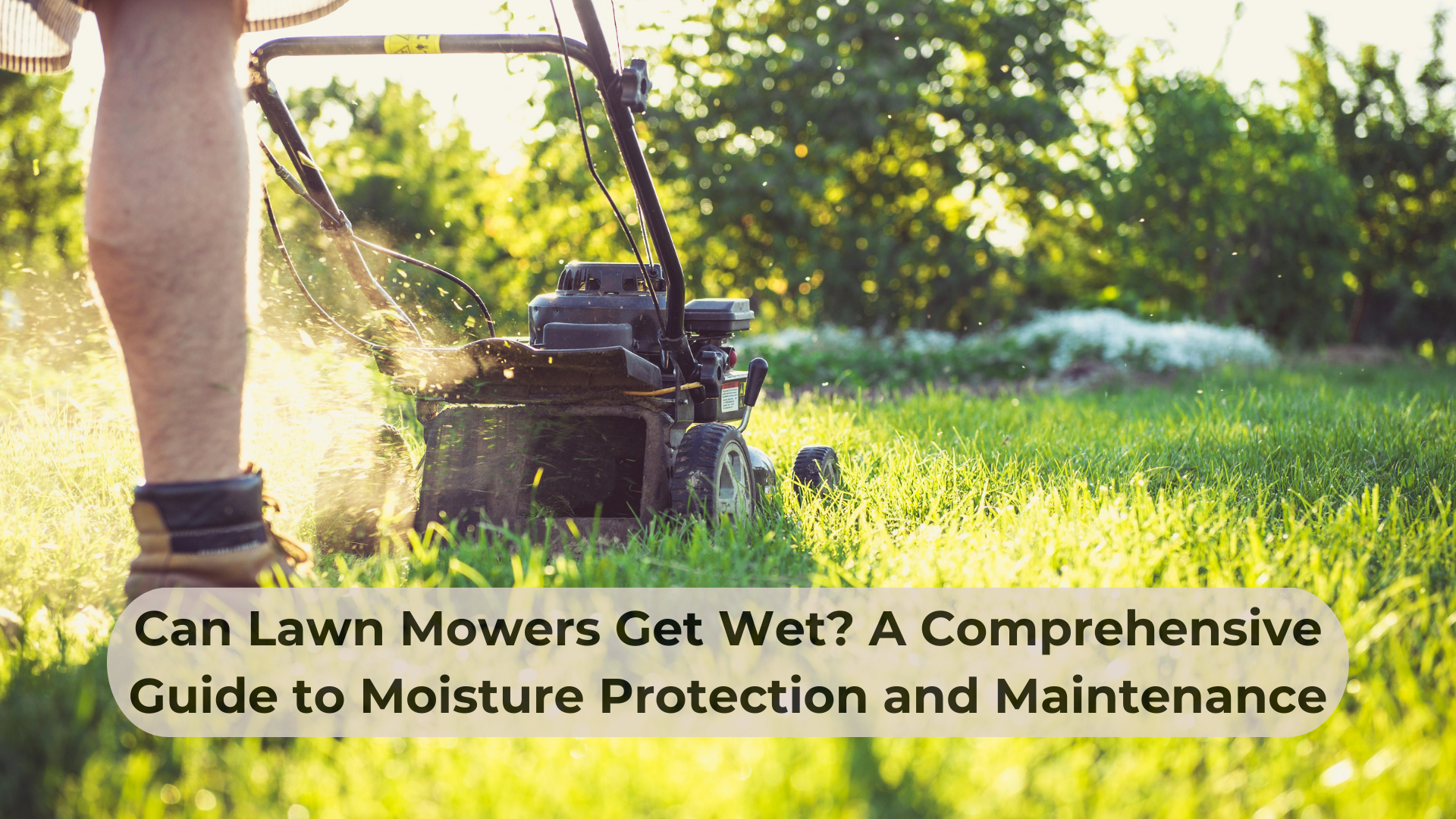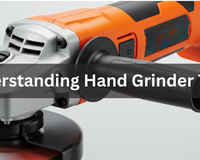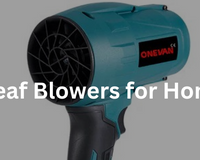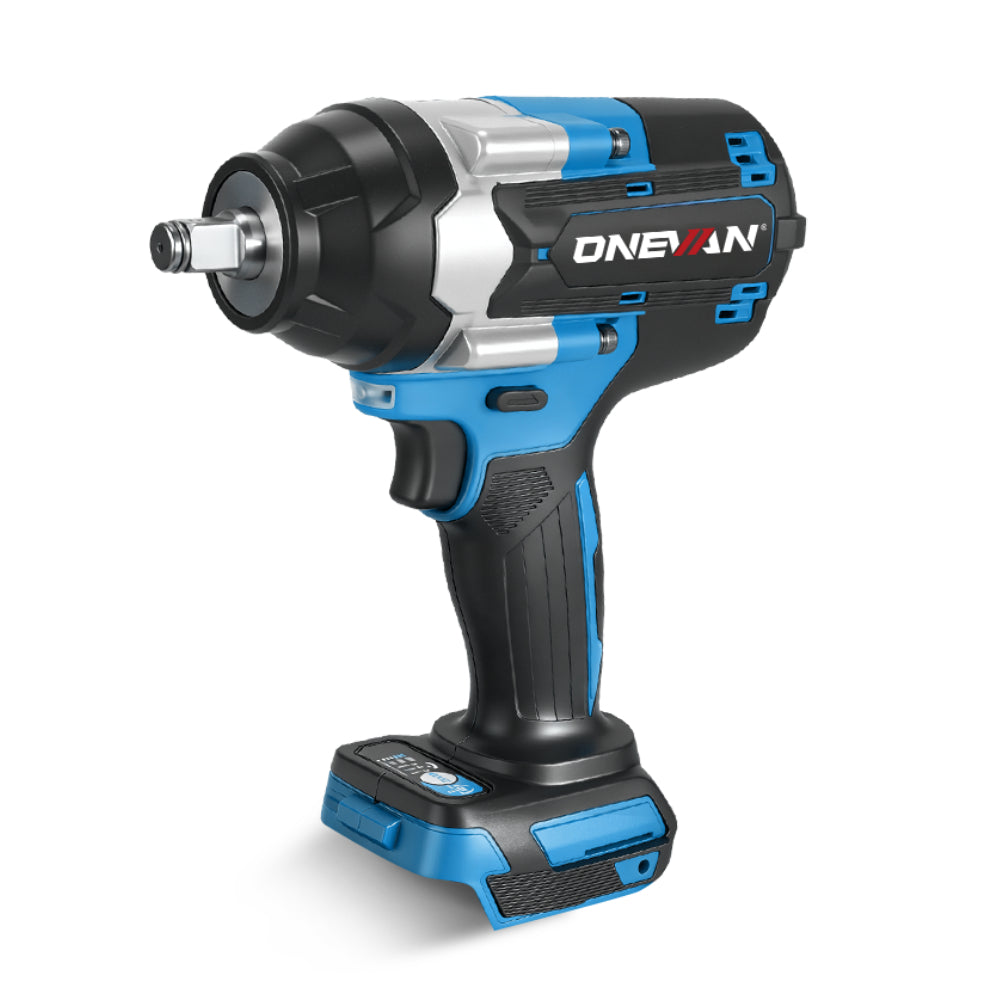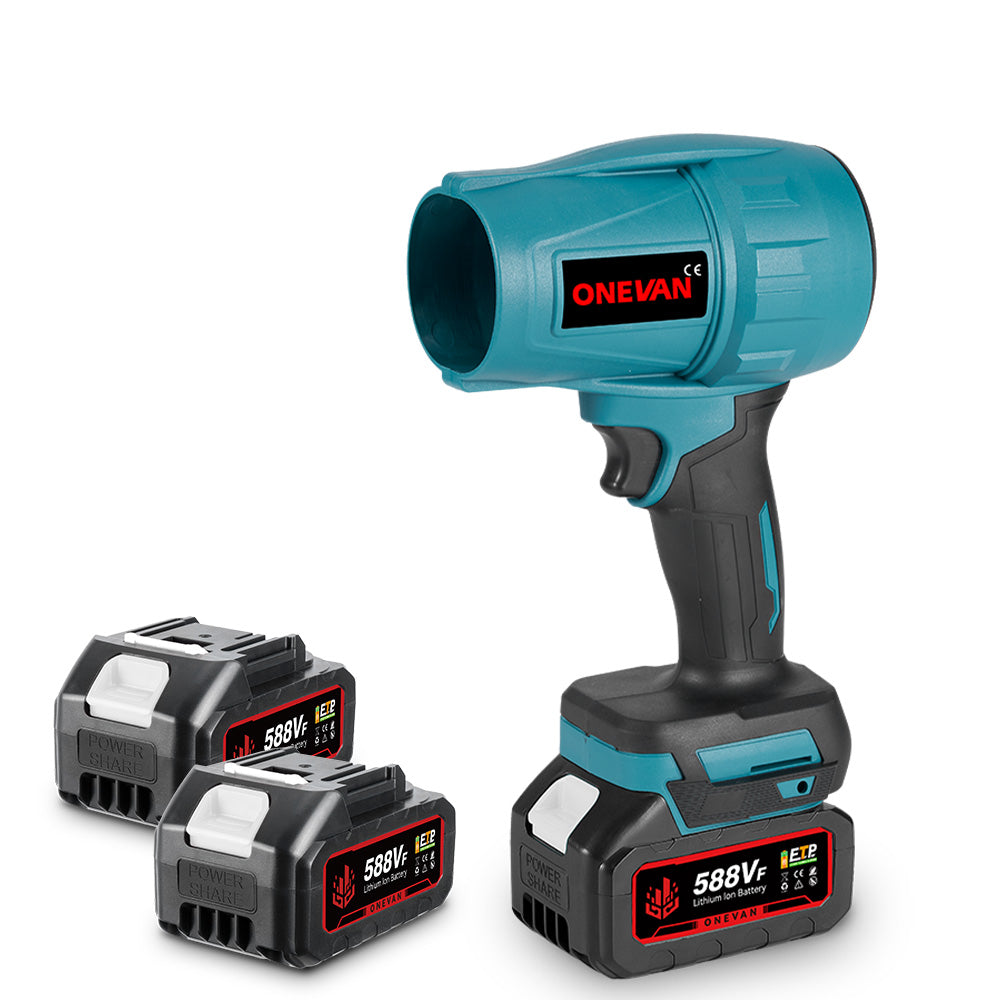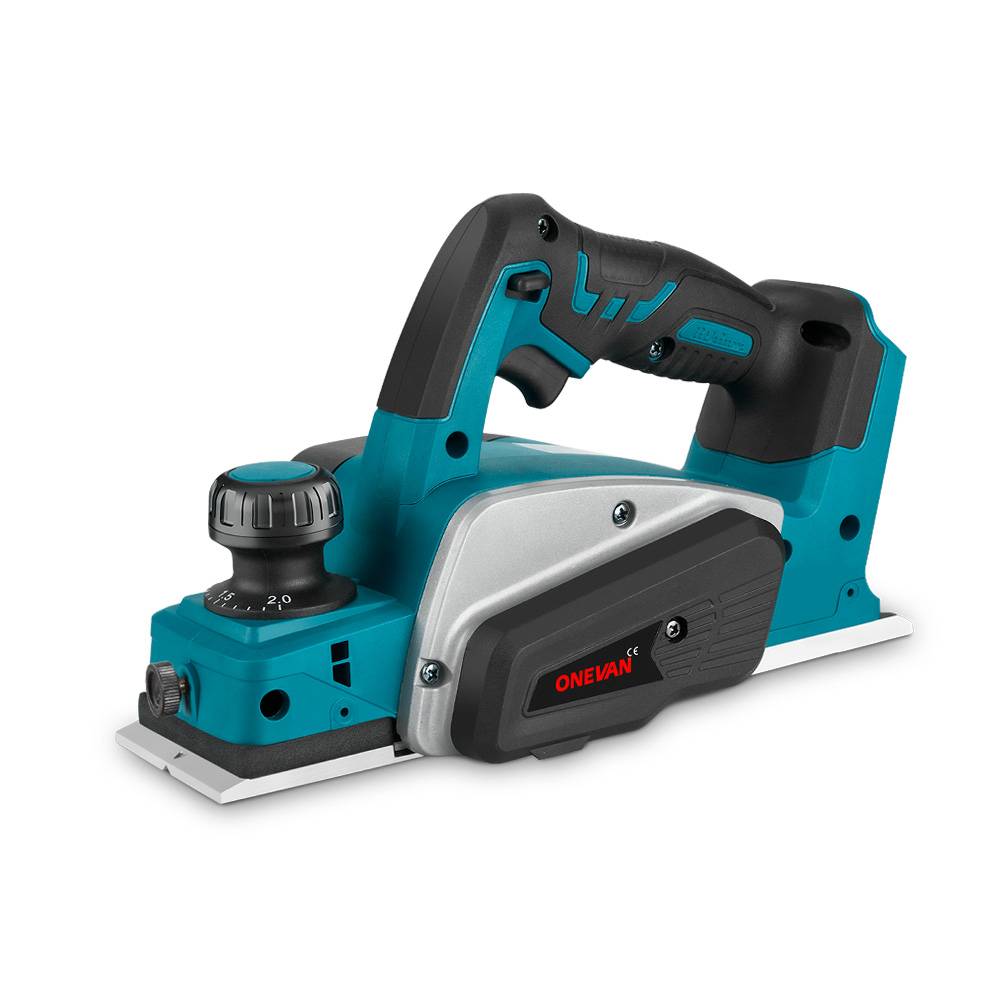Having a Cordless lawn mower is a blessing to keep the yard clean and maintained, but it can get damaged once exposed to moisture. Be it from rain, improper storage, or even dew, it can impact the life span of the mower. It's essential for you to understand the different conditions that can damage your mower and maintain its quality. Keep reading to know more about wetting electric lawn mowers and how to support this power tool.
1. What Makes Lawn Mowers Wet?
Wet By The Rain
Rain is the basic reason for a wet Cordless lawn mower. While some moisture exposure can be manageable, prolonged exposure can lead to water saturation in parts such as the deck and engine, causing various issues. This is the initial point of several problems, from rust to electrical issues. It's important to keep your electric lawn mower away from water.
Mowing Soggy or Wet GrassIt's not advisable to use a mower on wet grass as it can lead to several problems. It can even wet your mower, and grass clippings and moisture are stored on the deck and in the engine compartment. This moisture can reduce the mower's efficiency and increase wear and tear on its components and boost wear and tear. It's best to avoid mowing wet grass to prevent damage, but if necessary, minimize mowing time to reduce equipment strain.
Washing Lawn MowerUsing water for cleaning your mower is another common way to get it wet. No doubt, washing does maintain the mower's look, but you should do it carefully. You should make sure that water is not sprayed on sensitive parts such as the engine. Before storing it inside again, you should dry it properly.
Lawn Mower Improper StorageIt's essential to store your electric lawn mower in a dry and covered space to protect it from moisture and corrosion, especially considering that temperature fluctuations can lead to condensation. The shed will keep it safe from environmental conditions.
Lawn Mower Leaking FluidsFuel and fluid leaks from the mower can cause moisture problems. Giving proper attention to the leaks and inspecting them can decrease the damage and enhance the performance.
Condensation WaterThe condensation can be done when the mower is shifted from cold to warm surroundings. Moisture can settle on internal parts, leading to potential starting problems and rust if not addressed.
2. How to Tell If Your Lawnmower Gets Wet
Surface Visible Moisture
If the moisture is visible on the surface, it's evident that the mower is wet. You should check the parts of the mower to see if any water is stored there or not.
Starting DifficultiesYour mower may have difficulty starting due to moisture. Wet electrical connections and internal components can hinder the starting process.
Unstable Operating StatusThere is a high possibility your mower can have unstable functioning during usage. It can be stalling, rough idling, or erratic engine speeds.
Unusual NoisesMoisture can even lead your mower parts to get rusted, this can lead to noises such as grinding or squealing, indicating potential internal component issues.
Smoky ExhaustThe extra moisture in the engine can give rise to smoky exhaust. If there is a high amount of smoke, it means your engine has an exhaust system.
Oil DiscolorationYou should examine the oil for any dilution. If the oil is milky, it has moisture contamination. For proper engine lubrication, you need to change or filter it.
Corrosion or RustDo check your mower properly to see the symptoms of rust, on metal parts. Rust can be developed easily if it's exposed to water and kept undried. Proper attention and daily maintenance can ensure your mower's long span.
Wet Air FilterWith a wet air filter comes restricted air flow and the entrance of debris, ultimately affecting the engine's performance. You should inspect the air filter for moisture and get it fixed if it is damaged.
3. When Different Types of Lawn Mowers Get Wet
When Gas-Powered Mowers Get Wet
Gas-powered mowers are completely dependent on internal combustion engines; they are most likely to be sensitive to water. Once the water comes into action with the mower, it slips into the engine and then the fuel system and fails the engine slowly and shortens its life span.
When Electric Mowers Get WetThe electric mowers;can be battery operated or corded too, which can cause electrical issues. Due to water exposure, you can witness short circuits in the wiring and electronic system.
For corded electric mowers, water exposure is alarming as it can give electric shocks. While in battery-operated mowers, water exposure can raise the corrosion on the battery terminals and connections.
Riding mowers are too vulnerable in case of getting exposed to water. Water exposure can damage the engine, hydraulic system, and even the electric system. Lastly, rust and corrosion can be another criminal in ruining your mower's longevity and functioning.
4. What Happens If Your Lawn Mower Gets Wet?
Engine Damage
Water exposure can infiltrate the combustion chamber and fuel system, leading to significant engine damage. It can result in the worst engine functioning, engine failure, and starting problems.
Electrical System Short CircuitBoth electric and gas-powered mowers are susceptible to water exposure, which can lead to short circuits in electric mowers and affect the ignition system and spark plugs in gas-powered models. For electric mowers, this can weaken the functioning of the mower. On the other hand, in Gas-powered mowers, water makes the functioning of the ignition system and other electrical components worse.
Corrosion and RustExposure to water increases the chances of corrosion and rusting of metal parts of the mower. The parts that can adapt to rusting are the engine, fuel system, mower deck, and blades. Rust can't even weaken its internal parts but affects functioning too.
5. Parts of Your Mower That Should Not Get Wet
Engine and Fuel System
The engine and fuel system are the essential parts of an electric lawn mower that have to be kept dry. In gas-powered mowers, exposure can result in worse engine functioning and clogging, too.
Electrical SystemThe electrical system should be kept dry and away from water to avoid short circuit. The electrical connection disturbance can result in any situation.
Air FilterThe air filter is idea for keep your engine protected from the dirt and debris. If it's exposed to water the functioning effectivity is impacted negatively and makes way for contamination.
Bearings and Moving PartsThere are higher chances that bearings and other moving parts can be rusted. Water exposure can even lead to lubrication breakdown.
Mower Deck and BladesThe deck and blades of the mower have the potential to handle some moisture. However, the extra wetness can even make way for rust and corrosion. Doing proper drying and cleaning of these parts ensures longevity and high-quality services.
6. What to Do When Your Lawn Mower Gets Wet
Disconnect Power
For an electric mower
Always disconnect the mower from the power outlet before performing any maintenance. For the cordless electric lawn mower make sure to remove the battery for safety concerns.
For a gas mower
First, turn off the engine, cool it down, and then only work on it after that. To avoid accidental starting, you should keep proper checks and balances.
Dry the Exterior
With the help of a dry cloth, you can wipe down the mower's body. To avoid rusting, make sure to remove the water collected in the crevices.
Remove and Dry the Air Filter
For an electric mower
First, find the air filter, which is usually near the motor. After that, remove it and allow it to dry. If the filter is excessively wet yo,u need to replace it for optimum performance.
For a gas mower
After finding the air filter, remove it and make sure it's dry. If it's foam based, so remove all the moisture by squeezing. But if it's paper-based so make sure it's dry or replace it.
Inspect the Fuel System
For gas mowers
Examine your fuel tank properly for water contamination. If you find water in the fuel tank, drain it immediately and refill with fresh gasoline.
Dry Electrical Components
For an electric mower
Don't use any heat sources for the drying process, as they can damage the sensitive components. Before reconnecting the battery or replugging again, make sure all connections are dried.
For a gas mower
Use a dry cloth to clean and dry the electrical connections or components exposed to water.
Check and Lubricate Moving Parts
Check if the mower's bladed and other parts have rust or water damage. For smooth functioning of the blade shaft, wheel axles, and other moving parts, use a good lubricant.
Leave to Air Dry
Make sure that the mower is dried in a ventilated space for hours. This will remove all the excess water and ensure all the components are dry.
Reassemble and Test
For an electric mower
Place the battery back or plug the mower back. You should check the mower by starting in the dry area.
For a gas mower
Ensure all the components are properly placed, and reconnect the spark plug wire. Start the mower in a dry place, check its performance, and all components are doing well.
7. Tips for Keeping Your Lawn Mower Dry
Proper Storage for Your Mowe
It's essential to keep your mower in a sheltered place like hers to improve its lifespan. However, using a mower cover can be a great way to protect it from rain and prevent rust.
Regular Maintenance to Prevent Getting Wet
Day-to-day maintenance works well to keep your mower away from moisture. You should make sure that there are no leaks and seals are intact.
Avoid Mowing in Wet Weather
Avoid mowing in wet conditions, as the excess moisture can lead to clumping, clogging, and increased strain on the mower’s motor and blades. To avoid such a situation, make sure that the grass is dry. This practice will keep the mower dry and result in efficient functioning.
8. Conclusion
Now, you must be clear about the importance of keeping your mower away from moisture and heat. To increase your mower's longevity and have smooth functioning, you need ensure that your corded lawn mower is stored in dry place and away from moisture. Regular maintenance and checks and balances can highlight the issues beforehand and resolve them. Wet grass is not good for your mower as it can accumulate and cause problem in performance. By keeping regular check and balance, you can address the issues and get their solutions. With our tips and tricks, you must be clear with the maintenance of the mower. The best solution is to use the mower cover to protect it. For any query, please comment below. Thank you
9. FAQ
1. What happens if my lawn mower gets wet?
If your lawn mower get wet it can lead to electrical short circuits and engine trouble which will only occur after they have had time to dry out. This moisture can cause performance issues and wear over time so it is important to store your mower in a dry indoor place.
2. Can lawnmowers be left out in the rain?
Leaving your lawn mower outside in the rain exposes it to moisture that can cause rusting, damage electrical components and affect the performance of engine. Long term affects can be had with even light exposure. Storing your mower in a dry, enclosed area when not using it will also help to keep the machine well maintained..
3. Is it OK to leave a lawn mower outside?
Simply being outside, a lawn mower is exposed to precipitation like rain and dew, as well as shifts in temperature that can lead to rust and general wear down. Leaving it in outdoor storage for long periods of time can wear down the mower and make it less effective. It's better to store it indoors or under a cover, as this will allow the gear to last longer.
4. Is it OK to spray lawn mower with water?
Cleaning your lawn mower is as simple to spraying it down with water, but you definitely do not want any of that nectar getting on the engine or fuel system or electric anything. Clean the mower after every use and dry it out completely to avoid rust or any other moisture-related problems.
5. Is it bad for your mower to mow in the rain?
Wet grass will clump when cut, clog the mower, and strain the engine. Wet conditions can also lead to rust, damaging the mowing components. When you are in very wet conditions, it is best not to mow and be patient for dry weather patterns.
6. Are lawnmowers waterproof?
Lawnmowers are generally not waterproof, and water can cause irreversible damage. Water damage from exposure to the elements, like rain, can create rust, electrical issues, and even engine trouble in some cases if you leave your lawnmower wet with any accumulation of water sitting for weeks. Remember that you need to follow some steps to guard and defend your mower from any moisture.
7. Is wet grass bad for lawn mower?
Yes, mowing wet grass results in groups of grass clumping together and sticking to your mower, causing a clog and making the machine less effective. A significant overgrowth of wet grass can also lead to the blades and engine getting worn out, again adding to the rusting potential over time..
8. Do you need a cover for a lawn mower?
Yes, you can should use a cover on their lawn mower to protect it from rain, dust, and other environmental factors. The cover can stop the water so that rusting or spoilage does not occur, which will help increase your machine's lifespan.
9. Why is my lawn mower not working after it rains?
If your mower works only after rain, it could be because the dry power management components in less-than-waterproof encapsulation got water that shorted out. The mower sometimes will not start next time because wet conditions can rust or short-circuit it. Completely dry the machine and look for any signs of potential water damage.
10. Can I hang my lawn mower?
Lawn mower hooks are generally bad, meaning putting your lawn mower on hooks often pulls and strains its handles or wheels, eventually making the whole balance look tired. It has to stand in an ascendant position on a firm or otherwise grip without much inconvenience.
Tags:
lawn mowers, moisture protection, mower maintenance, wet lawn mower, lawn care tips, outdoor equipment, mower safety, mower storage, mower protection, water damage prevention, lawn mower care, mowing in rain, mower upkeep, yard equipment, mower maintenance guide.

